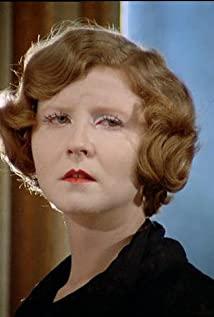Ali, a 40-year-old black man, took off all his clothes, revealing his sturdy body. He just fell on the bed with the bar woman, and there was no extra movement. The camera is quietly "watching" the pair of men and women outside the door. The straight lines on the left and right sides of the door frame firmly "lock" them inside. The whole composition is very narrow and oppressive. Ali in the picture is very tired, this is obviously not looking for the passion of cheating, the "sex" at this time is only sadness and loneliness. This dilemma created by the use of space corresponds to Ali's difficult life.
In Germany, the male protagonist Ali from Morocco is always an outsider. In the eyes of Germans, these migrant workers are dirty pigs who do not bathe and are discriminated against. Ali is just a general term for dark-skinned foreign workers. In this country, he has no name and no "identity". He is drunk every day except for work and cannot integrate into the local life. The heroine, Amy, is a 60-year-old widow with low height, out of shape, and plain appearance. She works as a cleaner in a building. Her children don't care much about her and she has no social status. The male and female protagonists are the kind of people who are easily overlooked, and this similar experience and state of mind is the basis for them to come together. From the hug and dance when they first met in the bar, to the marriage certificate, the two gathered together because of their loneliness to snuggle together to keep warm. Everything went well in the early stage, but after the union, they could not get any blessings. Age and race became a double obstacle to marriage, and all that awaited them were the indifference and scolding from all parties in the society.
The whole film is based on a popular melodrama, which is about two people, but points to the relationship between people in society. The greatest charm of the film is: concise and powerful. German director Rainer Werner Fassbender removed the "drama" in the story as much as possible and reduced the "action" of the actors' performances. ". The despair conveyed by the film is deeply buried and backlogged. Through photographic technology and scene composition, it enlarges the spatial distance between people or confines the characters in the "prison" created by straight lines, and the emotion of alienation and repression is ready to emerge. In the film, not only Ali was "trapped", but Amy was also "trapped". After the news of their marriage with Ali was known to the workers, they regarded Amy as nothing. At this time, Amy was ostracized and treated coldly. She sat alone on the stairs, and the foreground of the camera was filled with columns and stairs. Component, these vertical lines frame Amy as she chews food alone, helpless and poignant.
Ali and Amy's "trapped" is undoubtedly due to the indifference and morbidity of society. The director's criticism of the "majority" based on the experiences of the hero and heroine is very obvious. But more subtle is that Fassbender also used Amy's behavior to carry out "self-reflection and criticism". When the co-workers attracted Amy to form a united front because of the "wage increase incident", Amy and the co-workers naturally isolated the new Yugoslav female workers. At this time, an interesting scene appeared. In the same composition, Amy, who was eating alone on the stairs, turned into a Yugoslav female worker. How ironic it was.
The title comes from what the Arabs often say, "Fear eats the soul". Germans naturally contain fear in their prejudice against foreigners. This fear comes from not understanding each other. It is not understanding each other that leads to false rumors. Coupled with everyone's self-association and play, people like Ali have become liars. The image of a wicked man who cheats his feelings with money and doesn't take a bath. Prejudice may seem ingrained, but it can change in an instant. In the movie, there is an important basis for the change of prejudice and the resolution of contradictions, that is, Amy and Ali are of value to others. Behind the smiling face of the store owner is to win the arrival of Amy, a good customer and son, for mother to help take care of her child, for neighbors to take the initiative to chat up, to have more storage space... Amy seems to be willing to be "used" in exchange for the "goodwill attention" of others. She asked Ali to help the neighbors move things and let Ali show his muscles in front of his co-workers. Ali's request to eat Arabic food was rejected by her. , This series of things once again plunged Ali into depression and despair. Amy's behavior is so alarming that we have to re-examine the character and see ourselves: How much true love and respect does Amy have for Ali?
At the beginning and the end of the movie, there is a scene where two people dance, which seems to be an echo. The acquaintance of the first dance scene attracts each other, and the reconciliation of the second dance scene seems to indicate that everything has returned to the beautiful origin, and there is only two people in life when they are together, encouraging and caring for each other. But in the end, a variable appeared. Ali suddenly fell ill and was admitted to the hospital because of a gastric perforation. This scene is full of drama in the whole movie. In the ward, Amy held Ali's hand tightly, she was sobbing, her expression was painful and compassionate, and the movie undoubtedly had a "happy" ending. Maybe Amy's crying doesn't mean she understands the mistake of her actions and the hurt she's done to Ali. Maybe Amy gets it. This is all speculation and cannot be confirmed. But with Ali's illness due to the pressure of living in a foreign country, we can be sure that this will definitely not make their lives easier in the future, and the result will undoubtedly be suffering and uncertainty.
How to eliminate the gap between people, the answer given by the movie is-interest and love. As for how much love is between Amy and Ali, and how much is mutual use? The choice of what to believe undoubtedly represents each person's view of human nature.
View more about Ali: Fear Eats the Soul reviews











